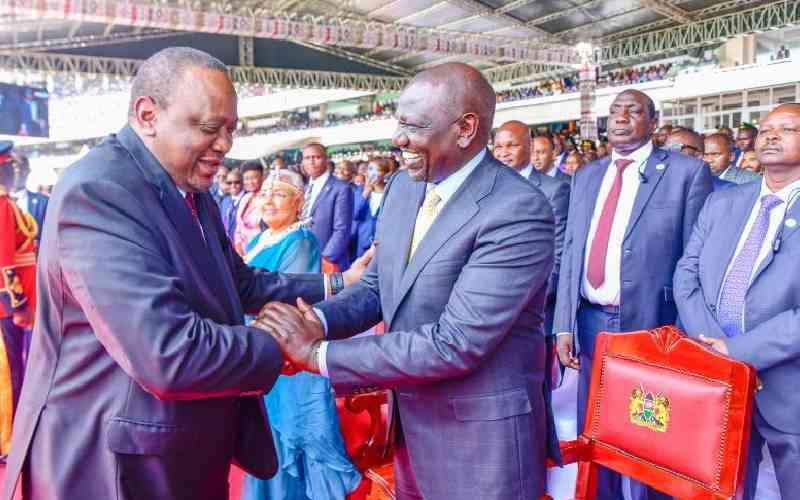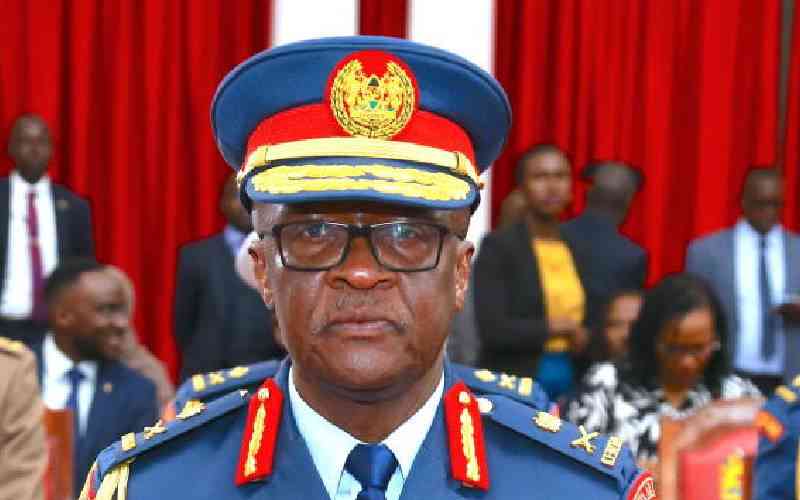For all the top-notch legal advice that President Uhuru Kenyatta gets, he is now facing an open rebellion in the House over his veto power.
The MPs believe that a cabal of advisers at State House and at the Office of the President are working in cahoots with corruption barons to abuse the presidential veto by having laws changed to suit partisan interests.
The spark for the fresh uproar in the House is what MPs have said is an obnoxious clause in the presidential memo on the Public Audit Bill, 2015. Uhuru’s proposal seeks to make the Auditor General’s office subservient to the Public Service Commission (PSC), which they believe will weaken the key office that exposes theft of public funds.
A key House committee led by a member of the ruling Jubilee coalition, and dominated by members of that coalition, punched holes in the presidential memo.
Finance, Planning and Trade Committee chairman Benjamin Langat (Ainamoi) led the committee in dismissing the memo simply because on the face of it, the changes “did not make sense”.
“The law is very clear. The Office of the Auditor General is an independent office. The PSC is an independent commission. You cannot make one subordinate to the other. Article 252(1)(c) is very clear: Each commission, and each holder of an independent office shall recruit its own staff,” Langat told The Standard on Sunday.
The concern is that if the key office is emasculated, by having the PSC decide who works there, then the oversight powers of MPs will be weakened and in effect the overt declaration that the Jubilee coalition is out to fight corruption will be shattered.
Langat said the President had been “misadvised” to append his signature to the proposal and insisted that the hiring of government auditors has to be done based on written instructions of the PSC.
On whether the decision to reject the law would put him in hot soup with his party leaders, Langat said this had nothing to do with loyalty, because as the National Assembly, MPs were “making a law for posterity”.
The MPs believe their hallowed territory to make laws is being infringed upon and they want Speaker Justin Muturi to rule on how the President shall express ‘reservations’ to clauses he is not happy with, instead of sending his amendments to the House.
“We see a trend which this House should be awake to; the Presidency, through some advisers, is legislating for this House. What they do is sit in State House and decide what they do not want.
“They do not even want to engage with Parliament because they know the threshold is high. They go and advise the President to change, alter and mutilate laws that we have made in this House. This is not acceptable and this House will live to regret surrendering its legislative authority to the Executive,” said John Mbadi (Suba), the national chairman of ODM.
Tyranny of numbers
For the chairman of the crucial parliamentary watchdog committee Nicholas Gumbo, Uhuru’s amendments infringed on the independence of the Auditor General and his work, and therefore, they had to be rejected.
“It was not in vain that the Constitution, under Article 252, provided for commissions and independent offices to be in charge of recruiting their own staff,” Gumbo said on Tuesday as the matter raged in the House.
Stay informed. Subscribe to our newsletter
The MPs were of the view that the veto power – the power of the President to refuse to sign Bills into law and send it back to Parliament with reservations—had to be “used carefully, selectively and only when it is very necessary”.
Deputy Minority Leader Jakoyo Midiwo (Gem) warned that when the country reaches a place where it will have a President with a minority in Parliament, it will be difficult for that President to raise a veto if Uhuru’s way of sending unchangeable amendments is allowed to hold.
“Jubilee has the tyranny of numbers, there is absolutely nothing to stop it from persuading, first, its Members and even all of us to pass the law ab initio. For a law to pass, it means that we have persuaded one another both in Jubilee and in CORD ... it is legislation through the back door for the President to bring a long list of amendments,” said Millie Mabona (Mbita).
David Ochieng (Ugenya), Chachu Ganya (North Horr) and Eseli Simiyu (Tongaren) argued that “an illegal amendment” in the Presidential memo amounted to wasting the time of Parliament, and forcing MPs to “legislate in vain”.
They said the “unconstitutional” clause was simply exposing MPs to litigation.
The process was queried by many MPs, but Majority Leader Aden Duale (Garissa Township), Majority Whip Katoo ole Metito (Kajiado South) and MPs Florence Kajuju (Meru) and Irungu Kangata (Kiharu) backed the presidential memo to have the PSC decide who works in the Auditor General’s Office.
“The Auditor General must be in a position to use the powers that have been bestowed upon his office before he claims extra powers. What the President has done is not against any known jurisprudence,” said Kajuju.
For Duale, no commission was absolutely independent and, therefore, because the PSC had the job of managing all civil servants, there was no point in giving the Auditor General a free hand to pick his staff.
“Once the President assents to any law, it is the function of the Judiciary either to annul it in totality or piecemeal. So, as we pass laws here, including this one, anybody who is in this House or listening to me, can go to court,” said Duale.
As the MPs sparred, the Auditor General went ahead and asked qualified auditors in Kenya to apply for senior positions in his office to boost the scrutiny of the expenditure of billions of shillings from the public coffers.
According to the Auditor General, the Constitution was very clear that the office was independent and that is why he put out the advertisement yesterday for the post of director of audit, a manager in charge of audit; audit associates for levels 1 and II, and support staff.
The Auditor General had already sent a memo to Parliament warning that the clause in the new Bill was illegal because it infringed on the independence of his office.
 The Standard Group Plc is a
multi-media organization with investments in media platforms spanning newspaper
print operations, television, radio broadcasting, digital and online services. The
Standard Group is recognized as a leading multi-media house in Kenya with a key
influence in matters of national and international interest.
The Standard Group Plc is a
multi-media organization with investments in media platforms spanning newspaper
print operations, television, radio broadcasting, digital and online services. The
Standard Group is recognized as a leading multi-media house in Kenya with a key
influence in matters of national and international interest.
 The Standard Group Plc is a
multi-media organization with investments in media platforms spanning newspaper
print operations, television, radio broadcasting, digital and online services. The
Standard Group is recognized as a leading multi-media house in Kenya with a key
influence in matters of national and international interest.
The Standard Group Plc is a
multi-media organization with investments in media platforms spanning newspaper
print operations, television, radio broadcasting, digital and online services. The
Standard Group is recognized as a leading multi-media house in Kenya with a key
influence in matters of national and international interest.








